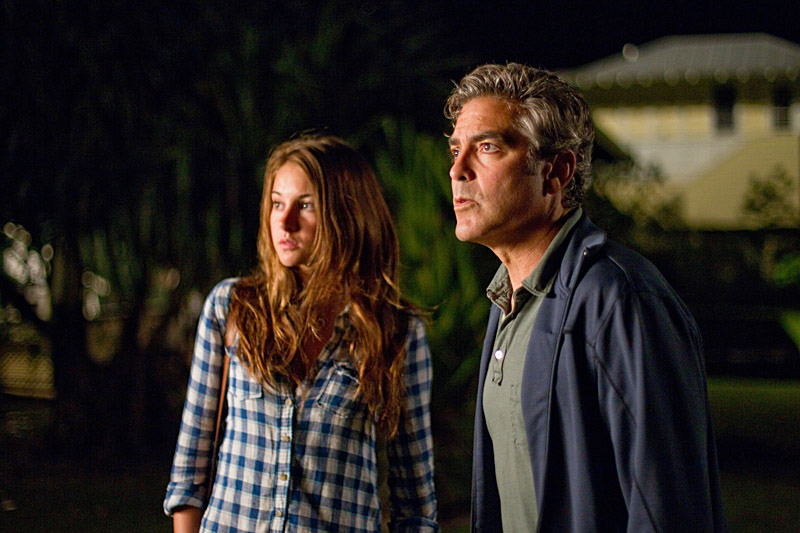Because it’s a total star turn for George Clooney, and because it’s been seven years since director Alexander Payne’s Sideways, and because it’s an Oscar-button-pusher that endorses family and land preservation, The Descendants may be knocked by some critics for being too “easy” and eager-to-please. Please. This is precisely the sort of smart, affecting seriocomedy that Hollywood has forgotten how to make these days. It’s a generous study in everyday catastrophes—death, infidelity, fractured families—that artfully acknowledges the obvious without wallowing in it. His wife in a coma (and about to be unplugged), attorney Matt King (Clooney) first cries in a long shot that Payne discreetly frames from behind. We can’t see his tears, but we can understand his grief. King’s two daughters, ages 10 and 17, are meanwhile acting out and talking trash; and his entire extended clan, which dates to colonial Hawaii, is greedily anticipating a huge windfall from the sale of ancestral property—paradise, about to be lost. This duly diligent lawyer prepares for the family vote to sell, until he feels a prick not of conscience but of jealousy: Standing to profit from the deal is his wife’s lover, a petty real-estate broker. King wants to meet the guy, so he drags his daughters on an island-hopping road trip—searching for one thing, finding another. His motives are mixed: King intends to confront his romantic rival, but this workaholic attorney also wants to assess whether his wife had transferred her love out of their marital contract. Was their paradise already lost? Is King merely a wealthy, middle-aged cuckold with nothing to show for his life? Like Sideways and About Schmidt, The Descendants is about soberly taking stock. And if The Descendants is ultimately warmer and more reassuring than Payne’s prior pictures, that’s partly because King starts from a better place, with kids and an established career (plus he’s played by Clooney, not Giamatti or Nicholson). But also because, though King may compare his family to “an archipelago, always slowly drifting apart,” we still call those islands a chain.
The Descendants: George Clooney As Reluctant Parent








